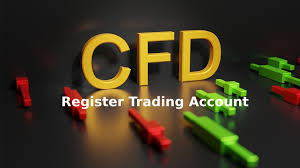bestbrokercfd.com
Discover the Best CFD Trading Regulations for Optimal Trading Safety
9 de julio de 2025by admin
0 Comments

Contract for Difference (CFD) trading has gained immense popularity over the last few years, providing traders the opportunity to speculate on price movements of various assets without actually owning them. However, the popularity of CFDs comes with risks, making it essential to operate under stringent regulations. In this article, we will explore the best cfd trading regulations https://bestbrokercfd.com/cfd-brokers/exness/ that offer traders a more secure trading environment.
CFDs are financial instruments that allow traders to speculate on the price movements of an asset, such as stocks, commodities, cryptocurrencies, and indices. When trading CFDs, you enter into a contract with a broker to exchange the difference in the asset’s price from the opening to the closing of the contract. This trading practice can be highly leveraged, meaning that traders can open larger positions relative to their capital, which increases both potential profits and risks.
Regulation is vital in the CFD trading market to protect traders from fraud, manipulation, and abuse. It also enhances the overall reputation of the trading environment. Traders need to be aware of the regulatory framework within which their chosen broker operates to ensure they engage in a safe trading experience. Here are some reasons why regulation is essential:
Different regions have their own regulatory authorities governing CFD activities. Here are some prominent regulatory bodies that oversee CFD trading:
The FCA is one of the most respected regulatory bodies in the world, overseeing financial firms in the UK. It imposes strict guidelines on brokers, including capital adequacy, client fund protection, and transparency. In the UK, CFD brokers must comply with the rules set forth by the FCA, making it a safe jurisdiction for traders.

ASIC is the financial regulatory body in Australia, known for its robust regulatory framework. ASIC regulates CFD trading within Australia, requiring brokers to adhere to strict financial standards, including holding client funds in segregated accounts. The agency ensures that traders have access to extensive educational materials and risk warnings.
CySEC serves as the regulatory authority for financial services in Cyprus, a popular destination for CFD brokers operating in Europe. While CySEC’s regulations are somewhat less stringent than those of the FCA, they still offer essential protections to traders, such as client fund segregation and regular audits of financial statements.
The SEC primarily regulates the securities markets in the United States, and while it does not regulate CFDs directly, it oversees related financial products. The stringent regulations set by the SEC ensure a low-risk trading environment for U.S. residents, contributing to overall market stability.
Choosing a CFD broker with strong regulatory compliance is crucial for any trader aiming for success in the market. Here are essential features to look for when selecting a regulated CFD broker:
Trading CFDs can be an exciting and lucrative venture if undertaken within the framework of the best CFD trading regulations. Understanding the regulatory landscape allows traders to make informed decisions, ensuring their funds are protected and their trading experience is positive. Always take the time to research your broker’s regulatory compliance, and seek out those that operate under established regulatory bodies to secure a safe trading environment. By doing so, you pave the way for a more successful trading career in the CFD market.
